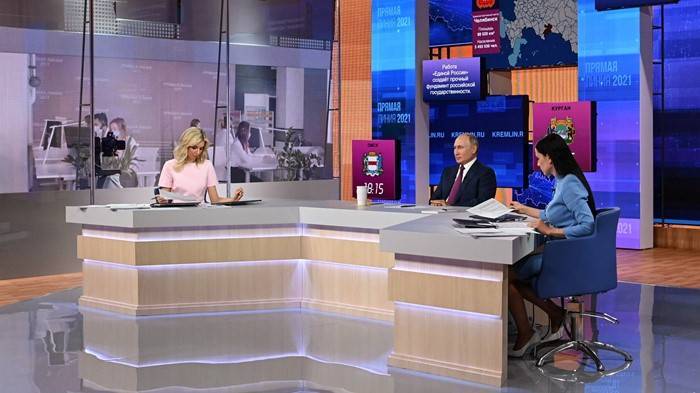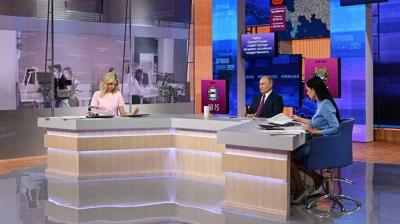"Powerful" cyber attacks targeted Russian President Vladimir Putin's direct phone dialogue with Russian citizens, which was broadcast live on television on Wednesday, according to the channel "Russia 24" that aired the event. The annual dialogue with Putin, transmitted by Kremlin-affiliated channels, features the Russian president answering questions posed directly by citizens from across the country.
This year's dialogue, which took place on Wednesday and lasted four hours, faced communication issues, especially when receiving calls from remote areas. A host from "Russia 24" informed Putin, "Our digital systems are currently facing strong cyber attacks," after a call from the Kemerovo region in southwestern Siberia encountered technical problems. Putin responded, "Are you joking? Really," and added, "It seems that there are hackers in Kemerovo."
The major telecommunications company Rostelecom in Russia confirmed to news agencies that there were cyber attacks, stating that measures had been taken "to prevent these illegal activities." Kremlin spokesman Dmitry Peskov told the "RIA Novosti" news agency that the source of the attacks was unclear.
Cybersecurity was a key topic on the agenda during Putin's summit with U.S. President Joe Biden earlier in June. In April, the Biden administration imposed sanctions on Moscow due to the "SolarWinds" cyber attack that targeted federal organizations and over 100 American companies. The United States also accused Russia of interfering in its elections, claiming that the interference was carried out either by Russian security services or hackers linked to the Kremlin. The Kremlin has repeatedly denied these allegations.
The attacks came a day after Moscow's UN Ambassador Vasily Nebenzya praised his country's proactive role in combating cyber crimes during the first official public meeting of the UN Security Council on cybersecurity, calling for the adoption of "new standards" through a "draft agreement to be ratified by 2023" that would be legally binding. Nebenzya added that "if the threats related to global cybersecurity make us all equal, they should be discussed not within a narrow circle of technologically advanced countries but with all UN member states."




